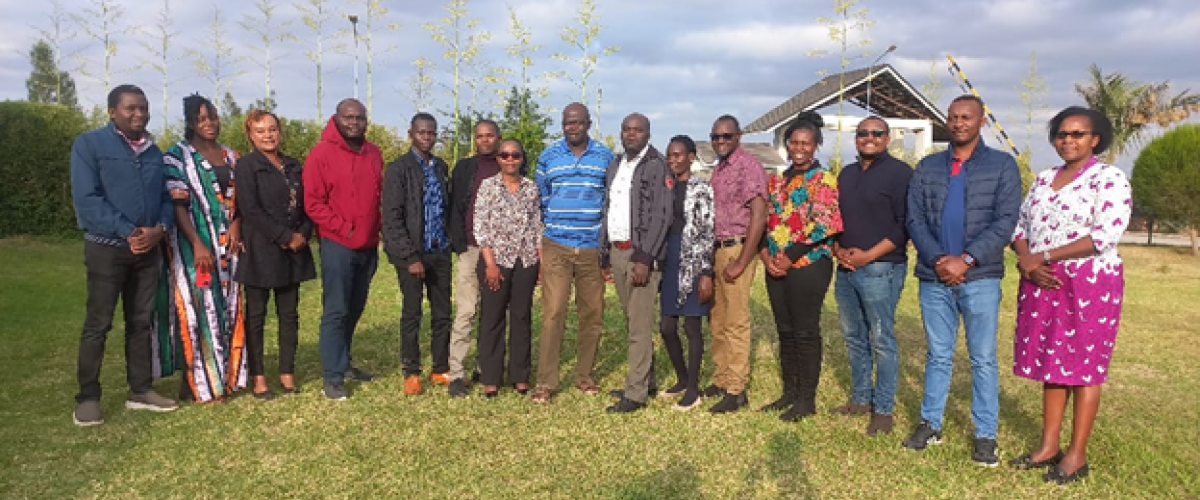
The University of Nairobi is set to integrate the "One Health" approach into a broader range of courses. This approach, which acknowledges the interconnectedness of human, animal, and environmental health, will extend beyond the faculties of human and veterinary medicine, where it has traditionally been focused.
This move serves as a trial initiative for the university, with the intention of gathering insights that can be shared with the Ministry of Education to facilitate the adoption of One Health in other universities across the country.
During a recent implementation meeting for a research project, Capacitating One Health in Eastern and Southern Africa (COHESA), senior educators from various university faculties expressed their commitment to incorporating this approach into the curriculum during the upcoming course review cycle, which occurs every five years, with the most recent review having taken place in 2020.
COHESA, which aims to prepare educational and research institutions for training the next generation of One Health professionals, will provide technical support to the University of Nairobi in selecting suitable course materials. Moreover, COHESA will promote collaboration between the university and Deans from Kenya's Commission for University Education (CUE) to explore the integration of One Health into academic programs.
Salome Bukachi, the University of Nairobi's focal point for COHESA, emphasised that One Health equips students with the skills to understand the complex impacts of climate change on public health, including issues like the transmission of diseases between animals and humans, the rise of antimicrobial resistance, and the safety and security of food and water.
The reviewed programs have a dual purpose: they aim not only to enable graduates to employ a One Health perspective in addressing intricate disease problems through systems thinking, but they also intend to provide students with the ability to comprehend disease ecology, evolution, and emergence, as well as to assess the factors influencing disease and their consequences, including the assessment of disease control and prevention strategies.
Bukachi, also a member of the World Health Organization's One Health High-Level Expert Panel, highlighted that around 70% of emerging infectious diseases in humans have origins in animals, and approximately 1.7 million viruses in wildlife remain undiscovered. This underscores the need for a workforce with diverse expertise in people, plants, animals, and the environment.
Kenya's One Health Policy assigns the Zoonotic Diseases Unit (ZDU), the coordinating body for One Health activities in Kenya, the responsibility of collaborating with partners such as COHESA and universities to develop curricula that prepare the One Health workforce to identify, detect, prevent, and respond to emerging pandemic threats.
Mathew Muturi, a field epidemiologist and co-lead at ZDU, stressed the importance of professional and technical training for effective One Health implementation. He noted that while the concept of One Health has existed as a broad concept, Kenya is transitioning toward conducting research and publishing findings related to health and generating data that can support the country during disease responses and fostering collaboration among professionals.
‘For instance, those in genomic sequencing can drive effective disease surveillance and those in communications and anthropology would drive public awareness,’ Muturi said.
There are various aspects of the One Health approach that are currently integrated into postgraduate programs at various faculties at the University of Nairobi, including faculties of agriculture (MSc Horticulture and MSc Food Safety and Quality), veterinary medicine (MSc Wildlife Health and Management, Veterinary Public Health), and health sciences (MSc Medical Microbiology). Additionally, Medical Anthropology at the Faculty of Arts has One Health courses.
The University of Nairobi currently has a Senate-approved Postgraduate diploma (POHERE) and Master of Sciences programmes (MOHERE) in One Health Emergency Research Ethics, which is hosted at the Department of Public Health Pharmacology and Toxicology and is jointly taught by staff from the University of Nairobi (Faculty of Veterinary Medicine, Faculty of Arts, Faculty of Health Sciences, and Faculty of Education), Kenya Medical Research Institute and Ohio State University